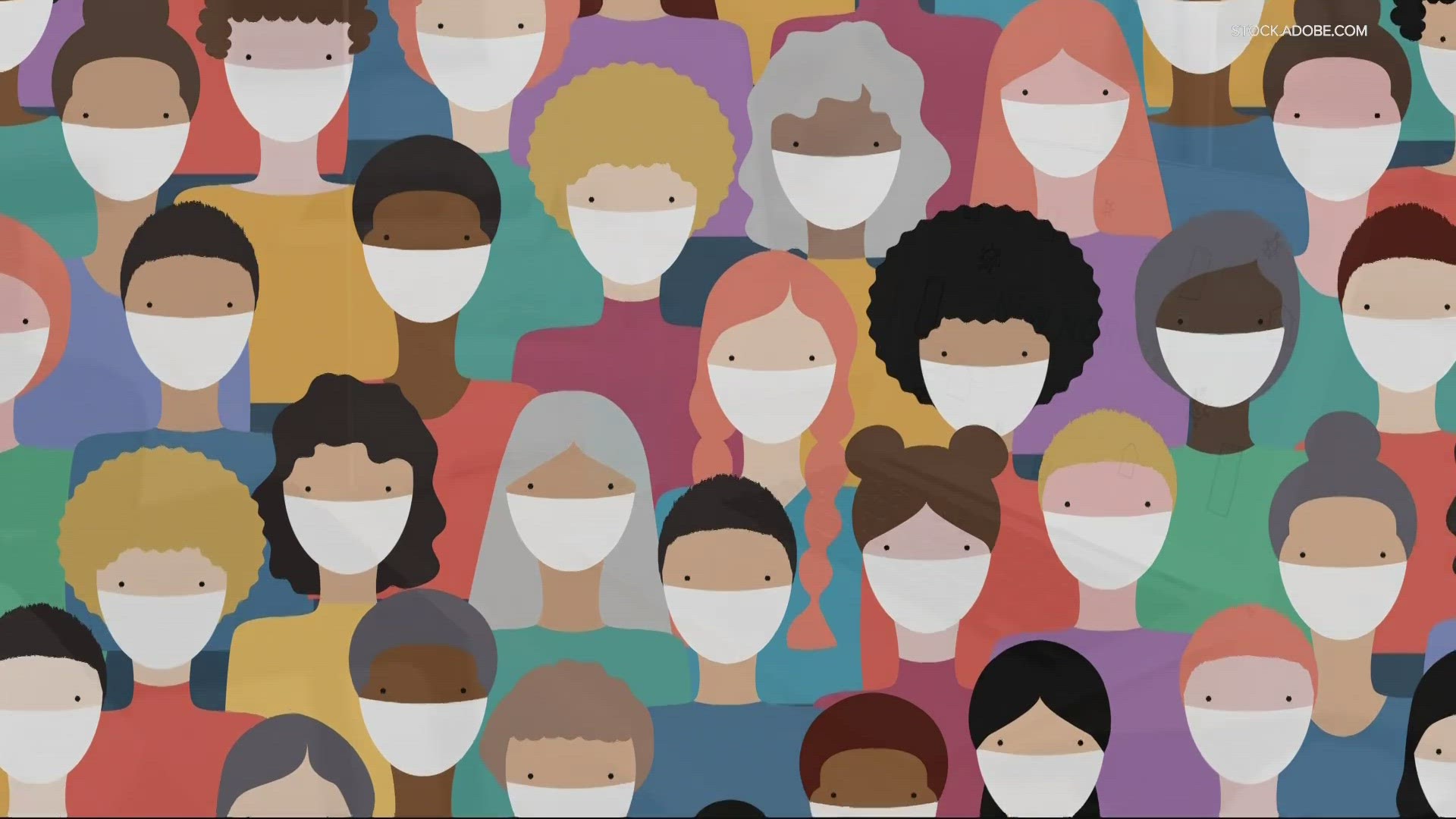PORTLAND, Ore. — It’s been three years since the pandemic hit, stopping everyone in their tracks. It flipped daily life upside down, claimed millions of lives, revealed systemic issues and changed the way people think about health.
A Portland doctor weighed in on where the world is now, what people have learned and what comes next. Despite the vaccination, he said COVID mutates so it's going to be around for a long time, just like the flu is.
"We now have come to the realization that COVID is with us for good," said Dr. James Polo, the executive medical director of Regence BlueCross BlueShield of Oregon. "Vaccination and boosters are going to continue to be part of our future and we’re probably going to continue to struggle with some of the emotional impacts of what the pandemic caused."
Polo also addressed the lasting impacts of COVID on people's mental health.
"Typically, whenever you have a significant disaster type event, the behavioral health response that comes afterward is longer lasting," Polo said.
The ripple effect of the pandemic has changed many people's relationships and how they interact with others, how they work and at one point, how their kids went to school. All of that change and isolation came with prolonged anxiety, worry, stress and depression for many.
"It takes a while to kind of recover from that long period of stress and anxiety,” Polo said.
Polo, who specializes in behavioral health, said the pandemic forced many to start thinking about mental health and it also normalized reaching out for help.
His first takeaway is that stress is normal, emotional responses to stress are normal and it’s OK to not be OK.
Next, Polo stressed that mental health and physical health go hand in hand. A good base for health: eating well, exercising and getting enough sleep – those things help strengthen mental health.
Lastly, anyone who thinks they need help should reach out and get it. Polo said to start with trusted friends and family, and then reach out to a professional, if needed.
The national mental health crisis line is 988 and it's a resource for help any day, any time.
"If you’re having struggles that really seem beyond what you can handle, then reaching out to a professional, starting out with, maybe your primary care doc and potentially getting referred for some behavioral health service," Polo said.
Even simply getting sick with COVID can have a negative impact on mental health.
"Keep in mind, folks that have any major illness can sometimes have a subsequent depression related to having had that illness,” Polo said. "So, we look for folks with COVID from a medical perspective also suffering from depression."
There are also long-term impacts of the COVID virus itself. Doctors are still learning about the effect COVID-19 can have on the body even after recovering from the initial illness.
Some people are still dealing with what’s called 'long COVID' or post-COVID conditions. That can include a wide range of ongoing health problems that last weeks, months or even years.
"One of the most common ones is a sense of being clouded or confused, not really organized as well as they thought they were beforehand," Polo said.
That’s called COVID fog and it’s one of the most reported post-COVID conditions, according to Centers for Disease Control and Prevention. It can cause people to feel tired or a level of fatigue that interferes with daily life.
Other post-COVID conditions can present with neurological, respiratory, cardiac and digestive symptoms, and even muscle and joint pain.
There’s no test that determines if a person's symptoms or condition is because of COVID-19. A doctor will consider a post-COVID condition based on their patient's health history.
Moving forward, many people are keeping the lessons they learned during the pandemic, such as the need for work-life balance, virtual and expanded healthcare options, and the importance of good hygiene.
"And I would hope also that people have learned that it’s actually safe to get vaccinated and that they do. Getting vaccinated is not only a good thing for them individually, but it helps protect the people around them," Polo said.

